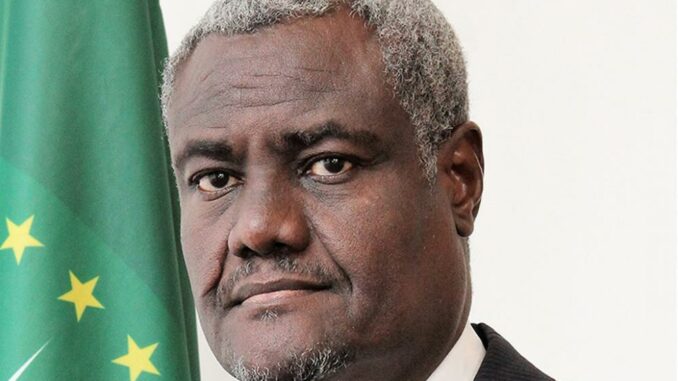
The African Union on Thursday January 4 called for “calm” and “mutual respect” between Ethiopia and Somalia, following the renewed tensions between the two countries caused by a maritime agreement signed between Addis Ababa and the breakaway region of Somaliland.
With this “memorandum of understanding” signed on Monday, the region of Somaliland – which unilaterally proclaimed its independence from Somalia in 1991 but is not recognized by the international community – intends to grant Ethiopia access to 20 kilometers of its coastline for a period of 50 years, via a “leasing” agreement. Addis Ababa has indicated that this will enable it to benefit from “a permanent naval base (…) and commercial maritime services on the Gulf of Aden”, notably in the port of Berbera.
Mogadishu denounced an “aggression” and a “flagrant violation of its sovereignty”, promising to fight this “illegal” text by “all legal means”. In a statement on Thursday, the Chairman of the African Union Commission, Moussa Faki Mahamat, “called for calm and mutual respect to ease the simmering tensions” between Somalia and Ethiopia.
He urges them “to refrain from any action that could unintentionally lead to a deterioration in the good relations between the two neighboring countries” and asks them to “engage without delay in a negotiation process”. “It underlines the imperative of respecting the unity, territorial integrity and full sovereignty of all member states of the African Union, including the Federal Republic of Somalia and the Federal Democratic Republic of Ethiopia”, the text adds.
The United States affirmed on Wednesday that it “recognizes the sovereignty and territorial integrity of the Federal Republic of Somalia”, calling on the parties to “engage in diplomatic dialogue”. Following the signing of this “memorandum of understanding”, Somaliland President Muse Bihi Abdi asserted that, in exchange for access to the sea, Ethiopia would “formally recognize the Republic of Somaliland”.
In a statement on Wednesday, the Ethiopian government said it would carry out “an in-depth evaluation with a view to taking a position on Somaliland’s efforts to obtain international recognition”. Ethiopia, Africa’s second most populous country, had been seeking access to the sea for thirty years, but lost it when it gained independence from Eritrea in 1993.
A relatively stable region of 4.5 million inhabitants compared with neighboring Somalia, the self-proclaimed republic of Somaliland prints its own currency and issues its own passports, but the absence of international recognition keeps it in certain isolation. It remains poor despite its strategic location on the southern shore of the Gulf of Aden, on one of the world’s busiest trade routes leading to the Red Sea and the Suez Canal.
